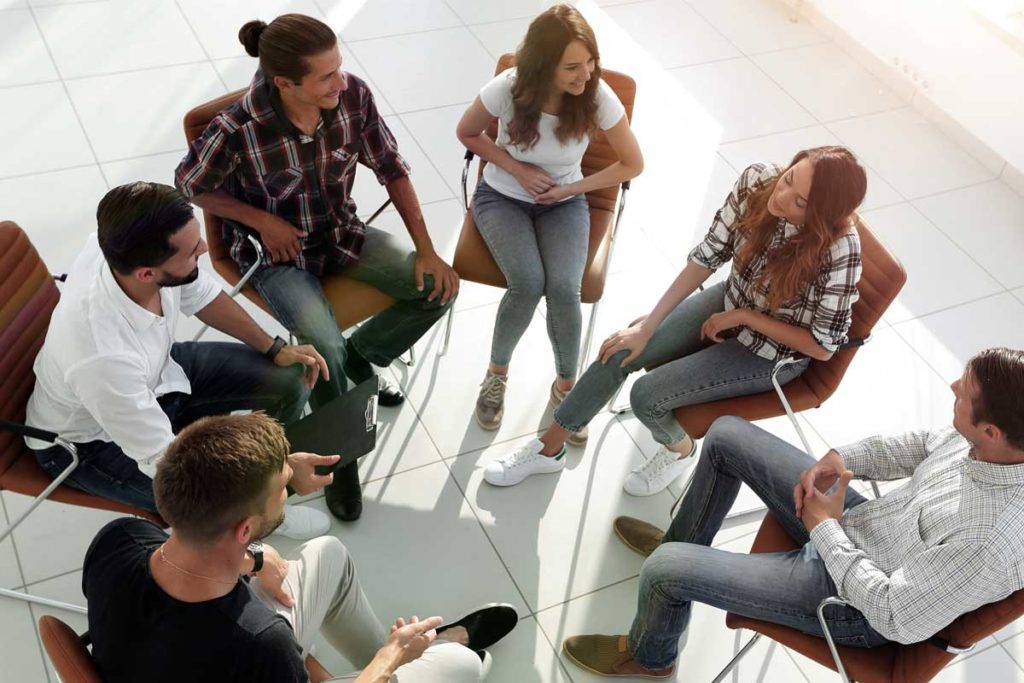It is not uncommon for people to abuse substances to help them cope with trauma or a traumatic event. Trauma is an emotional response to a terrible event. It can happen to anyone at any point in their life. It affects people of all ages and backgrounds and can lead to serious symptoms and side effects. Dealing with trauma can be difficult and, if left untreated, lead to other serious conditions like depression or addiction. It is critical to deal with trauma in a safe and supportive environment. At Harmony Haus in Austin, TX, we provide a trauma workshop to help our members heal mentally and emotionally.
Five Trauma Workshop Activities
1. Exploring Boundaries and Setting Healthy Personal Boundaries
Our trauma workshop activities allow members to explore their boundaries in a safe and comfortable setting. Members also learn how to set healthy personal boundaries and communicate them effectively. This is an important trauma workshop activity because boundaries are crucial for recovery. Boundaries can help a person protect themself from past behavior and damaging relationships.
2. Learning Different Types of Traumas and How They Affect People Differently
The multiple types of emotional trauma lead to different emotional responses. Learning about them and how they impact people can be beneficial for working through a traumatic experience. People can better understand how their trauma has impacted their mental and emotional health, which can start the healing process. Members can identify what therapy programs or other treatment methods might work best for them.
3. Discuss Past Experiences as a Group
Another one of our important trauma workshop activities is participating in group activities and discussions. Members share their experiences with their fellow group members in a caring and supportive environment. Opening up with others who have shared experiences or have gone through similar things can make people more comfortable talking through their trauma. Discussing your experiences and what you have been through is an integral part of healing. In addition, having a strong support system of people you trust can be highly beneficial for long-term recovery.
4. Discovering Subconscious Memories and the Emotional Responses Connected to Them
Discovering subconscious memories and their emotional responses can be a helpful activity for working through trauma. When a person experiences trauma, it can lead to feelings of fear, changes in behavior, changes in attitude, and difficulty functioning. Trauma workshop activities help people discover and work through their subconscious memories and the emotional responses they bring up. This allows members to process their memories and their negative emotions.
5. Recognizing Triggers and How to Cope with Them
A trigger is something that causes a person to recall a traumatic event. Examples of triggers include feelings such as loneliness, certain places, or specific relationships. Learning what your triggers are is extremely important for understanding and learning how to heal from the trauma. Trauma workshops also help members develop tools and strategies to cope with triggers. Techniques such as breathing exercises and meditation are healthy ways to deal with triggers and negative memories or emotions. Recognizing triggers and developing coping strategies are essential to treating trauma and addiction recovery.
Trauma Workshop at Harmony Haus in Austin, TX
At Harmony Haus, our team focuses on providing quality care, support, and respect to each member. We provide many programs and services, including a trauma workshop, to ensure our members’ needs are met as they recover.
Some of our other core sober living services include:
- Intervention
- Care management and recovery coaching
- Sober transport
- Sober companion
- Legal aid
- Crisis care
- Treatment planning and placement
- Financial coaching and family offices
- Sober living house
- Integrate intensives admission
- LGBTQ support
Reach out to Harmony Haus at 877.349.1544 to learn more about how programs can help you or your loved one.

